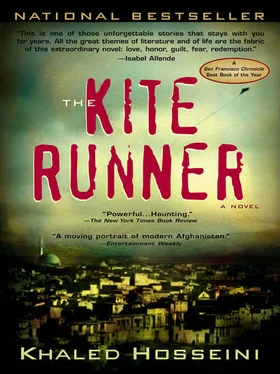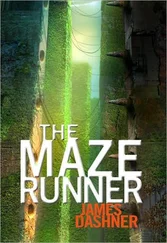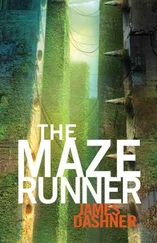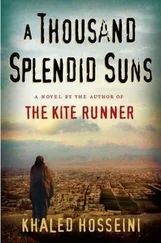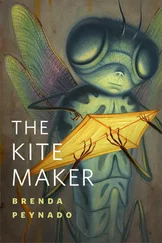Farid took my arm. “We should go, Amir agha,” he said softly. I snatched my arm away. “What else? What else did she say?”
The old man’s features softened. “I wish I remembered for you. But I don’t. Your mother passed away a long time ago and my memory is as shattered as these buildings. I am sorry.”
“But even a small thing, anything at all.”
The old man smiled. “I’ll try to remember and that’s a promise. Come back and find me.”
“Thank you,” I said. “Thank you so much.” And I meant it. Now I knew my mother had liked almond cake with honey and hot tea, that she’d once used the word “profoundly,” that she’d fretted about her happiness. I had just learned more about my mother from this old man on the street than I ever did from Baba.
Walking back to the truck, neither one of us commented about what most non-Afghans would have seen as an improbable coincidence, that a beggar on the street would happen to know my mother. Because we both knew that in Afghanistan, and particularly in Kabul, such absurdity was commonplace. Baba used to say, “Take two Afghans who’ve never met, put them in a room for ten minutes, and they’ll figure out how they’re related.”
We left the old man on the steps of that building. I meant to take him up on his offer, come back and see if he’d unearthed any more stories about my mother. But I never saw him again.
WE FOUND THE NEW ORPHANAGE in the northern part of Karteh-Seh, along the banks of the dried-up Kabul River. It was a flat, barracks-style building with splintered walls and windows boarded with planks of wood. Farid had told me on the way there that Karteh-Seh had been one of the most war-ravaged neighborhoods in Kabul, and, as we stepped out of the truck, the evidence was overwhelming. The cratered streets were flanked by little more than ruins of shelled buildings and abandoned homes. We passed the rusted skeleton of an overturned car, a TV set with no screen half-buried in rubble, a wall with the words ZENDA BAD TALIBAN! (Long live the Taliban!) sprayed in black.
A short, thin, balding man with a shaggy gray beard opened the door. He wore a ragged tweed jacket, a skullcap, and a pair of eyeglasses with one chipped lens resting on the tip of his nose. Behind the glasses, tiny eyes like black peas flitted from me to Farid. “ Salaam alaykum ,” he said.
“Salaam alaykum,” I said. I showed him the Polaroid. “We’re searching for this boy.”
He gave the photo a cursory glance. “I am sorry. I have never seen him.”
“You barely looked at the picture, my friend,” Farid said. “Why not take a closer look?”
“Lotfan,” I added. Please.
The man behind the door took the picture. Studied it. Handed it back to me. “Nay, sorry. I know just about every single child in this institution and that one doesn’t look familiar. Now, if you’ll permit me, I have work to do.” He closed the door. Locked the bolt.
I rapped on the door with my knuckles. “Agha! Agha, please open the door. We don’t mean him any harm.”
“I told you. He’s not here,” his voice came from the other side. “Now, please go away.”
Farid stepped up to the door, rested his forehead on it. “Friend, we are not with the Taliban,” he said in a low, cautious voice. “The man who is with me wants to take this boy to a safe place.”
“I come from Peshawar,” I said. “A good friend of mine knows an American couple there who run a charity home for children.” I felt the man’s presence on the other side of the door. Sensed him standing there, listening, hesitating, caught between suspicion and hope. “Look, I knew Sohrab’s father,” I said. “His name was Hassan. His mother’s name was Farzana. He called his grandmother Sasa . He knows how to read and write. And he’s good with the slingshot. There’s hope for this boy, Agha, a way out. Please open the door.”
From the other side, only silence.
“I’m his half uncle,” I said.
A moment passed. Then a key rattled in the lock. The man’s narrow face reappeared in the crack. He looked from me to Farid and back. “You were wrong about one thing.”
“What?”
“He’s great with the slingshot.”
I smiled.
“He’s inseparable from that thing. He tucks it in the waist of his pants everywhere he goes.”
THE MAN WHO LET US IN introduced himself as Zaman, the director of the orphanage. “I’ll take you to my office,” he said.
We followed him through dim, grimy hallways where barefoot children dressed in frayed sweaters ambled around. We walked past rooms with no floor covering but matted carpets and windows shuttered with sheets of plastic. Skeleton frames of steel beds, most with no mattress, filled the rooms.
“How many orphans live here?” Farid asked.
“More than we have room for. About two hundred and fifty,” Zaman said over his shoulder. “But they’re not all yateem . Many of them have lost their fathers in the war, and their mothers can’t feed them because the Taliban don’t allow them to work. So they bring their children here.” He made a sweeping gesture with his hand and added ruefully, “This place is better than the street, but not that much better. This building was never meant to be lived in – it used to be a storage warehouse for a carpet manufacturer. So there’s no water heater and they’ve let the well go dry.” He dropped his voice. “I’ve asked the Taliban for money to dig a new well more times than I remember and they just twirl their rosaries and tell me there is no money. No money.” He snickered.
He pointed to a row of beds along the wall. “We don’t have enough beds, and not enough mattresses for the beds we do have. Worse, we don’t have enough blankets.” He showed us a little girl skipping rope with two other kids. “You see that girl? This past winter, the children had to share blankets. Her brother died of exposure.” He walked on. “The last time I checked, we have less than a month’s supply of rice left in the warehouse, and, when that runs out, the children will have to eat bread and tea for breakfast and dinner.” I noticed he made no mention of lunch.
He stopped and turned to me. “There is very little shelter here, almost no food, no clothes, no clean water. What I have in ample supply here is children who’ve lost their childhood. But the tragedy is that these are the lucky ones. We’re filled beyond capacity and every day I turn away mothers who bring their children.” He took a step toward me. “You say there is hope for Sohrab? I pray you don’t lie, Agha. But… you may well be too late.”
“What do you mean?”
Zaman’s eyes shifted. “Follow me.”
WHAT PASSED FOR THE DIRECTOR’S OFFICE was four bare, cracked walls, a mat on the floor, a table, and two folding chairs. As Zaman and I sat down, I saw a gray rat poke its head from a burrow in the wall and flit across the room. I cringed when it sniffed at my shoes, then Zaman’s, and scurried through the open door.
“What did you mean it may be too late?” I said.
“Would you like some chai ? I could make some.”
“Nay, thank you. I’d rather we talk.”
Zaman tilted back in his chair and crossed his arms on his chest. “What I have to tell you is not pleasant. Not to mention that it may be very dangerous.”
“For whom?”
“You. Me. And, of course, for Sohrab, if it’s not too late already.”
“I need to know,” I said.
He nodded. “So you say. But first I want to ask you a question: How badly do you want to find your nephew?”
I thought of the street fights we’d get into when we were kids, all the times Hassan used to take them on for me, two against one, sometimes three against one. I’d wince and watch, tempted to step in, but always stopping short, always held back by something.
Читать дальше
